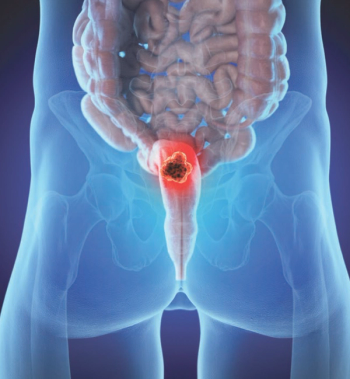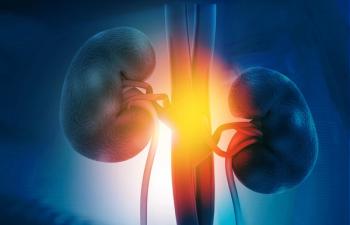
Results from the Beamion-LUNG 1 trial showed an ORR of 75% for patients with HER2+ NSCLC treated with zongertinib.

Your AI-Trained Oncology Knowledge Connection!


Results from the Beamion-LUNG 1 trial showed an ORR of 75% for patients with HER2+ NSCLC treated with zongertinib.

In patients with rectal cancer, the median OS was 12 years in the chemotherapy and radiation therapy group vs 24 years in the chemotherapy alone group.

Researchers from the BMT CTN reported that posttransplant cyclophosphamide-based GVHD prophylaxis significantly improves outcomes for adults aged 70 years and older undergoing allo-HCT.

Researchers at the CHOP have developed a new strategy to improve the effectiveness of GPC2-directed CAR T-cell therapy in neuroblastoma by reprogramming the tumor immune microenvironment.

Results from a phase 2 trial showed a 1-year local control rate of 93.1% with SABR in patients with solid tumors who have uncomplicated bone metastases.

External validation will be assessed in cohort 2 of the AURORAX-0087A trial to improve recurrence detection for clear cell renal cell carcinoma.

The cumulative chronic grade 3 or higher toxicity rate was 3% in patients treated with de-escalated adjuvant radiotherapy vs 11% with standard of care therapy.

Leveraging #WCLC25, lung oncologists spoke about the presentations they’re most looking forward to at the upcoming conference.

Updates on treatments like vusolimogene oderparepvec for advanced melanoma, and novel therapies have been provided by the FDA.

Only 2 patients died in the phase 3 trial evaluating interferon-alpha in adult patients with cancer, but were deemed unrelated to study treatment.

Decreased MAPK signature and increased interferon gamma response signature were associated with sustained treatment benefit on serial evRNA profiling.

The denosumab biosimilars have been approved based on review of a comprehensive data package that showed no meaningful differences vs the already approved agents.

Jorge Cortes, MD, believes that, despite the rapid improvements made in CML treatment, there is always more to be done to help patients.

The most common toxicity associated with TAS-102 was neutropenia, with grade 3 events occurring in 73.3% of patients with colorectal cancer.

Blood-based markers of note in kidney cancer prognosis include circulating tumor DNA and proteomic markers, according to Michael B. Atkins, MD.

“…I like TAS-102 as an agent, but we need better drugs than we have right now to clear ctDNA and cure patients,” said Hornstein, MD, PhD.

Christian J. Nelson, PhD, dives into the complexities of sexual health concerns with men following cancer treatment, specifically with genitourinary cancers.

The overall pain experience among adult and pediatric patients with severe sickle cell disease significantly improved after exa-cel infusion.

Pediatric patients self-reported symptom burden using the SSPedi tool, which observed symptom burden from baseline, 4 weeks, and 8 weeks.

The phase 2 INTERCEPT-TT trial showed that TAS-102 induced ctDNA clearance following adjuvant chemotherapy in patients with colorectal cancer.

The incidence of grade 3 to 4 acute toxicities was similar in patients with high-risk gastric cancer treated with chemoradiation or chemotherapy.

Adjuvant chemotherapy with hormonotherapy in women at least 70 years of age with GGI-high risk HER2-negative breast cancer led to more AEs vs hormonotherapy alone.

Clinical trials still have a role in improving outcomes with immunotherapy among those with kidney cancer.

Boris M. Kiselev, MD, discusses the role of psycho-oncology in comprehensive cancer care, addressing barriers and offering a vision for the field’s future.

The addition of dendritic cells to TACE in patients with intermediate-stage HCC did not significantly increase the incidence or severity of AEs.

An oncologist’s passion for breast surgery, novel cancer vaccines in gastrointestinal cancers, and emerging actionable biomarkers for lung cancer were all covered in August.

The safety profile of sonrotoclax was generally well-tolerated, and emergent toxicities were manageable in patients with mantle cell lymphoma.

Results from a phase 3 trial led to the approval of leuprolide mesylate as a 3-month formulation for patients with advanced prostate cancer.

The rolling submission is supported by data from the PIK3CA wild-type cohort of the phase 3 VIKTORIA-1 trial evaluating gedatolisib in advanced breast cancer.

TT125-802 monotherapy shrank the tumors in 5 of 7 patients with drug-resistant NSCLC, and no thrombocytopenia was observed.